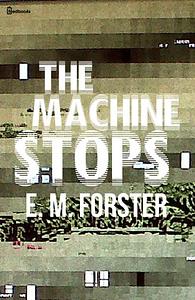Take a photo of a barcode or cover
Two stories one apocalyptic, the other whimsical, reflecting on art and its relationship to existence.
challenging
dark
reflective
medium-paced
Plot or Character Driven:
A mix
Strong character development:
Complicated
Loveable characters:
Complicated
Diverse cast of characters:
Complicated
Flaws of characters a main focus:
Complicated
challenging
tense
fast-paced
reflective
fast-paced
challenging
dark
sad
fast-paced
Plot or Character Driven:
Plot
Strong character development:
No
Loveable characters:
No
Diverse cast of characters:
No
Flaws of characters a main focus:
No
challenging
dark
emotional
reflective
tense
medium-paced
Plot or Character Driven:
A mix
Strong character development:
No
Loveable characters:
No
Diverse cast of characters:
No
Flaws of characters a main focus:
Complicated
reflective
fast-paced
Plot or Character Driven:
Plot
Strong character development:
No
Loveable characters:
No
Diverse cast of characters:
No
Flaws of characters a main focus:
Yes
dark
medium-paced
Spoiler
"All these tubes and buttons and machineries neither came into the world with us, nor will they follow us out, nor do they matter supremely while we are here."This reads like a short episode of Black Mirror, so learning the year it was written really is mind blowing. If Forster had written this in the late 60s just before he died I would have been impressed by his prescience, so to discover he conceived of this world right at the beginning of the 20th century is truly incredible.
Having spent the pandemic years working from home in isolation and spending days in which my only human interactions were virtual, I could really relate to Vashti and her "horror of direct experience" when finally venturing from her room, as well as her reliance on routine and her obsession with the idea that she had not the time to do anything, though she quite obviously had nothing but time.
It almost feels like Forster, without going into many specifics, managed to predict internet social media and its tranquilising effect on the population as well as its reduction of our attention span.
I would have liked for this to have been developed into a longer form, a novella perhaps, as I would like to explore the demise or "stopping" of the machine and how that came about, whether it was sabotaged by Kuno and others or was the result of some natural decay which he foresaw. Of course the allegory of the Machine and humanity's reliance on it was the key to takeaway here and the detail is left to individual imagination/interpretation.
Regarding this message, I'm not entirely sure it rings true that a reliance on automation and machines would bring about this disconnect between humanity and the natural world or history; rather automation ought to allow us more freedom to experience and explore. (Though our overuse of machines causing the destruction of the natural world may sabotage this possibility - which Forster also seems to have predicted, though in the story it is unclear to what extent). Of course the building of the subterranean civilisation was necessary to create this disconnect and create instead dependence on the Machine and its progress.
I also think that Forster lets humanity off the hook a bit, even including a passage exonerating kings and leaders of taking their countries to war asserting that it was just the result of an "invincible pressure", similarly that the responsibility for the development of the Machine were not human but rather some vague incorporeal inevitability. Rather both these things are really follies or conscious method of control (and profit) devised by the ruling class.



